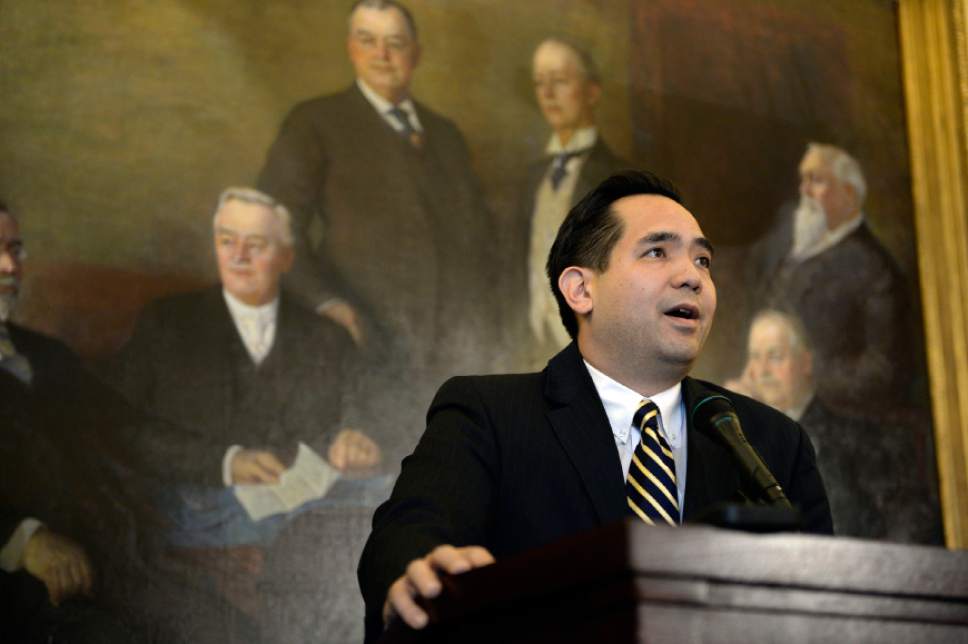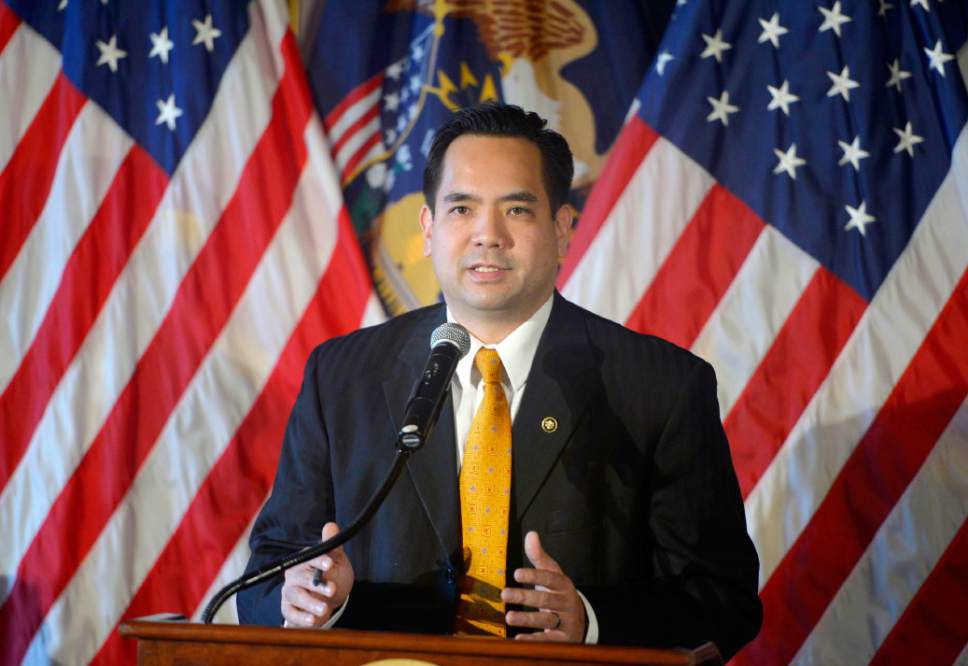This is an archived article that was published on sltrib.com in 2014, and information in the article may be outdated. It is provided only for personal research purposes and may not be reprinted.
Utah Attorney General Sean Reyes is removing himself from having any role in the state's defense of a law changing the way candidates are nominated in the state.
After initially saying he believed he could lead the defense without any conflict of interest, Reyes, a Republican, reversed course Friday and said he will be walled-off from having any involvement in the matter.
Reyes had expressed support for the caucus-and-convention system in the past, but that alone would not have prompted him to recuse himself, he said Friday.
"However, because I am an elected member of the governing body of the Plaintiff [the Utah Republican Party], and have contributed money to organizations, including the party in support of the caucus-and-convention system, I feel it is best to recuse myself from this case," Reyes said in a statement Friday. "My recusal will not impact the legal process or the [office's] defense of SB54. Some of our office's most capable and experienced attorneys will be involved in defending the law."
The Utah Republican Party filed the suit earlier this month, alleging the changes made by the Legislature in SB54 unconstitutionally stripped the party of the ability to control who is nominated as a Republican candidate, representing the party.
SB54 was a compromise between legislators and leaders of the Count My Vote movement, which had gathered more than 100,000 signatures to put a measure on the 2014 ballot changing the nominating process.
Count My Vote contended that Utah's low voter turnout was a result of a nominating process that had been taken over by delegates from the extremes in both parties, leaving mainstream Utah voters feeling disenfranchised. They proposed an alternate path to the ballot, allowing candidates to gather signatures and make it to the primary ballot, where the candidates could win the party's nomination without going through the convention process.
The reform also opens the Republican Party primary election to independent voters. Democrats already open their primaries to any registered voter, regardless of party affiliation.
The GOP sued, arguing the party has a constitutional right to free association and to pick the candidates the party wants through its own processes, without state interference.
Gov. Gary Herbert and Lt. Gov. Spencer Cox, the state's top elections official, are named as defendants in the suit. The attorney general's office is defending the law.
A "screen" will be set up within the office, which typically means that Reyes will not have access to information about the case or any input on the direction it takes. Reyes' chief of staff, Parker Douglas, is the attorney representing the state, according to the court docket.
Twitter: @RobertGehrke





